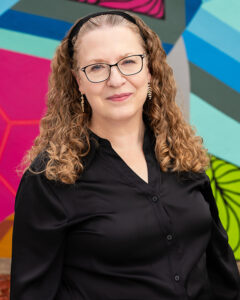Legionnaires’ disease identified in deceased resident on Aug. 24

SUBMITTED PHOTO — Bernard “Bernie” Grady was confirmed to have Legionnaires’ disease on Aug. 24, 10 days before public health officials let the public know of the outbreak. Unfortunately, Grady died from the illness and congestive heart failure on Aug. 29.
While the Iowa Department of Health and Human Services and Marshall County Public Health alerted the public about the presence of a Legionnaires’ disease outbreak on Thursday, there was a confirmed case 10 days prior on Aug. 24.
According to the Reportable Communicable Diseases and Infectious Conditions page on the HHS website, Legionnaires’ disease should be reported to the state within three days.
Legionnaires’ is a bacterial infection associated with pneumonia and commonly spread through man-made water systems, such as cooling towers, hot tubs and air conditioning systems. Late yesterday night, HHS issued a release stating all of the identified 21 cases are in people who live in north central Marshalltown. While the number of Legionnaires’ cases is holding at 21, the outbreak has unfortunately claimed the life of one resident.
Bernard “Bernie” Grady, 82, a retired priest of the Archdiocese of Dubuque, died Aug. 29 from the bacterial infection at Allen Memorial Hospital in Waterloo. His brother, Pete Grady, said Bernard’s symptoms began with a feeling of dizziness on Aug. 21.
“The next night he came over for supper on a Friday,” he said. “I asked him how he was doing and he said he was dizzy.”
Grady took his brother to the Urgent Care, but they were unable to conduct the proper blood testing. So, they went to the emergency room at UnityPoint Marshalltown, where they stayed for the next three and a half hours.
“They were testing for everything under the sun, just one thing after another – multiple blood draws, x-rays, a CAT scan,” he said. “They said he should spend the night at the hospital.”
The brothers, Grady said, are typically resistant to hospital stays, but decided that was the correct move. Bernard then began developing a series of fever spikes. Hospital staff knew there was an infection, and were very concerned about it, he said.
“But apparently legionella is a difficult bacteria to identify,” Grady said. “They were throwing antibiotics at him, which were maintaining him but not touching it. It was not until Sunday or Monday when they said they knew what it was.”
When the Legionnaires’ disease diagnosis came on Aug. 24, Grady said the fever spikes had ended and his brother was napping “quite a bit.”
“We chatted a bit, and he said he wanted to get back into the swing of things,” he said. “He wanted to read his daily breviary, and I went home and got it for him.”
The breviary is a liturgical book containing daily prayers for clergy members. On Aug. 26, Bernard was transferred to the Waterloo hospital. Grady said Bernard soon became confused and went into congestive heart failure.
“Bernie was in bad shape,” he said. “That doesn’t mean he did not get exemplary medical care. I am very pleased with the care he received at Marshalltown and from Allen Memorial.”
The doctors had done everything they could do. Grady had to make the decision on whether to continue medical treatment or provide Bernard with comfort care.
“I would not have done that if I thought there was a chance for him to have a meaningful life,” he said. “I knew what he wanted, so I said to get rid of the machines and let him pass away as comfortably as possible.”
His brother was an old man who got caught by the legionella bacteria, which took advantage of Bernard’s body not being able to fight back. He died three days after being admitted to Allen Memorial.
“It was a surprise attack on somebody who was not strong,” Grady said.
He stressed the excellence he saw from the Marshalltown and Waterloo medical communities as staff fought to save Bernard.
One big point Grady wanted to make regarding the outbreak of Legionnaires’ in Marshalltown is that county and state public health officials are the only people capable of conducting the investigation.
“They can’t just snap their fingers and find the answers,” he said. “It doesn’t work that way.”
Grady said they might not be identifying possible locations as the source of the bacteria as they do not want people to panic.
“They are doing their best at tracking it,” he said. “I think they deserve the opportunity to figure it out.”
Marshalltown Water Works says disease is not tied to drinking water
On social media platforms, residents are speculating what the source of the bacteria could be in north central Marshalltown.
While the legionella bacteria can be found in a town’s water supply, Marshalltown Water Works General Manager Zach Maxfield said he and his staff are sad and concerned about the outbreak and the loss of life. He added that there is no indication the 21 cases resulted from the town’s drinking water.
“Our understanding is that the state health department is investigating to identify the source and we’ve made ourselves available to help in any way we can,” he said. “The most important thing we’d like your readers to know – the state has advised that if you are experiencing symptoms of pneumonia or other respiratory conditions, you should seek medical attention immediately.”
Contact Lana Bradstream at 641-753-6611 ext. 210 or lbradstream@timesrepublican.com.




